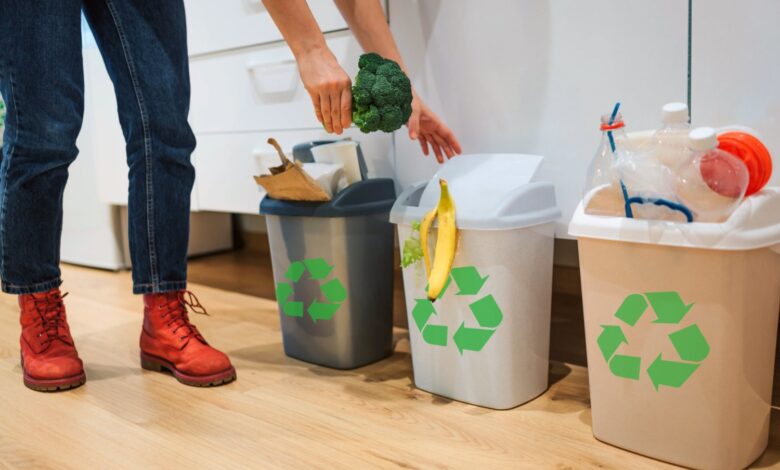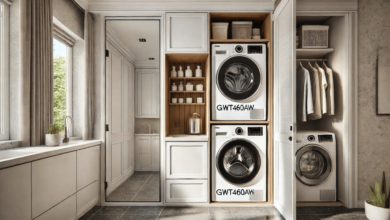Top 6 Mistakes People Make When Disposing Of Household Waste

Domestic waste disposal errors are more prevalent than most would imagine. Whether it is throwing an old battery in the wrong bin or dumping oversized furniture on the pavement, improper waste disposal processes are detrimental to both the environment and local communities.
While the Environment Agency and councils strive to encourage sustainable living, homes still contribute to landfill problems, fly-tipping, and littering. In this blog, we’ll discuss the top household waste disposal mistakes and how you can steer clear of them for a cleaner, greener UK.
1. Failing To Segregate Waste Properly At Home
Segregation of waste at home is essential, but most homes still do not separate recyclables from regular trash. This reduces the effectiveness of household waste recycling facilities and renders otherwise recyclable materials unusable. Separating biodegradable waste from non-recyclable waste and understanding the meaning of recycling symbols are easy but effective habits.
Proper segregation of paper, plastics, food waste, and glass can go a long way in lowering what goes into landfills. If you’re unsure how to separate your waste, your local waste management authority likely provides helpful guides or bin labelling systems to assist.
2. Recycling The Wrong Way
Recycling with the best intentions can still cause more harm than good. One of the most common mistakes in waste disposal is “wish cycling” — tossing an item into the recycling bin in the hope that it’s recyclable. Items such as greasy pizza packaging, plastic bags, and dirty containers are often thrown into the recycling bin but contaminate entire loads.
A further standard error is not reading recycling symbols, which inform you whether an object can be put into recycling or taken to a specialised centre. Avoid these recycling errors to help generate a cleaner recycling stream.
3. Incorrectly Disposing Of Hazardous Household Items
Most homes unwittingly dispose of toxic household waste into standard rubbish. Products such as batteries, paints, cleaning products, and electronics contain toxic chemicals that can leach out and harm the environment. Not only is this against UK waste disposal laws, but it also presents critical safety hazards.
Guidance from DEFRA (Department for Environment, Food & Rural Affairs) advises using specific drop-off sites or organising collection through your local council. Proper disposal of such materials eliminates soil and water body contamination as well as the risk to waste carriers.
4. London Fly-Tipping and Illegal Dumping
London’s fines for illegal dumping are strict for a reason. Not just eyesores for neighbourhoods, fly-tipping also costs local councils millions to clear up each year. Yet individuals dump mattresses, fridges, or bin bags full of rubbish in alleys, falsely expecting someone else to sort it out. The truth? It’s a criminal offence, and you will be liable for a fine of up to £50,000 or even imprisonment.
To avoid paying fly-tipping fines, it is essential to utilise proper means of waste disposal, such as council services or environmentally friendly rubbish clearance services. If you’re in South London, for instance, Lambeth’s bulky waste collection can facilitate the proper disposal of bulky items.
5. Disposing Of Large Items The Wrong Way
Planning to dispose of an old washing machine or sofa outside your apartment? Think twice. This is one of the most common household waste disposal errors that can lead to unnecessary waste accumulation and council fines. Effective waste disposal procedures for bulky items involve organising special collection days with your council, reserving council-funded bulky waste collection, or engaging professional rubbish removal services in Lambeth and the nearby areas.
There are even services that provide environmentally friendly rubbish clearance, sorting materials for donation or recycling before any landfill waste is generated. Appliances and furniture shouldn’t be abandoned on the road without a strategy — it’s not just thoughtless but might even be against the law.
6. Failure To Hire Professional Rubbish Clearance Services
Doing the job yourself might be less expensive, but it’s not necessarily safer or wiser. One of the most common mistakes among homeowners is attempting to dispose of large quantities of household waste on their own. Lacking knowledge of UK waste disposal policies, you might face fines, injuries, or unintentional environmental damage.
Professional rubbish removal services in Streatham and the surrounding areas are essential because they can guarantee that waste is disposed of legally, safely, and effectively. Whether you are refurbishing, relocating, or tidying up, qualified waste carriers know how to dispose of waste the right way — and save you time, effort, and potential legal headaches.
The Environmental Impact Of The Wrong Rubbish Removal
Negative waste management creates more than untidy streets. The environmental cost of improper rubbish disposal includes higher levels of greenhouse gases in the atmosphere, contamination of the ground and waters, and excessive use of landfill space.
Each plastic bag that is not recycled or a battery that is not properly managed contributes to long-term environmental degradation. With over 26 million tonnes of UK household waste produced every year, individual habits — such as adherence to waste disposal rules or the employment of experts — play a significant role in promoting sustainable lifestyles.
Household Waste Disposal Tips To Remain Within The Law
· Always refer to your council’s waste collection timetable.
· Recyclables and food waste should be separated correctly.
· Never leave domestic waste outside of the selected collection dates.
· Dispose of hazardous or electronic waste at a household waste recycling facility.
· Employ professional rubbish clearance services if unsure.
· Understand the difference between biodegradable and non-biodegradable waste.
Being proactive in managing household waste prevents penalties and benefits the environment.
Conclusion
Avoiding household rubbish disposal errors isn’t simply about compliance with the law — it’s about protecting your surroundings and sustaining your community. Whether it involves proper waste segregation at home, preventing recycling errors, or learning hazardous rubbish disposal regulations, every bit counts towards a greater good. With assistance from local waste disposal services and expert rubbish removal experts, doing the right thing is as easy as ever. Let’s create greener homes, cleaner streets, and a cleaner UK — one bin at a time.
FAQs
Q1. Is electrical waste acceptable in my normal bin?
No. Electrical equipment like kettles, hairdryers, and redundant chargers have parts that are hazardous in landfill. These need to be brought to approved household waste recycling centres or back to stores via the WEEE (Waste Electrical and Electronic Equipment) scheme.
Q2. What is typically discarded incorrectly in UK homes?
Food containers with grease, recycling bins containing nappies, batteries in ordinary waste, and soft plastics such as wrappers are the most frequent incorrectly disposed of items.
Q3. What are the fines for improper disposal of household wastes in London?
Fines consist of fixed penalties not exceeding £400 and prosecution leading to fines of up to £50,000 or imprisonment. Penalties for illegal dumping in London are severe to discourage fly-tipping.
Q4. What are the items banned from landfill?
Solvents, asbestos, tyres, clinical waste that is not treated, and some electrical equipment are prohibited. These should be disposed of according to hazardous waste disposal procedures.
Q5. How do I dispose of bulk items such as furniture or white goods in an environmentally friendly way?
Make use of your council’s bulk waste collection service or engage the services of licensed professionals for environmentally friendly rubbish removal. Do not dump items on the roadside if not pre-arranged with a collection service.




